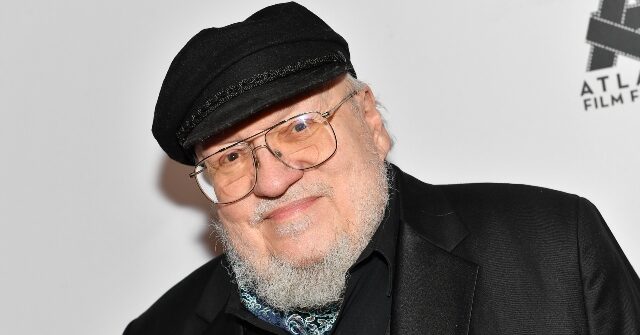The Hollywood Reporter reports that the copyright infringement lawsuit filed by George R.R. Martin and other book authors against OpenAI has taken a favorable turn for the plaintiffs. A recent ruling by a federal court has advanced two additional theories of infringement, bolstering the authors’ case against the AI company.
The lawsuit, which is part of the first wave of AI copyright cases, revolves around three main arguments. Firstly, the authors claim that OpenAI’s training of AI models on copyrighted books constitutes infringement. Secondly, they allege that the company engaged in the practice of pirating books from shadow libraries, regardless of whether these books were used for training purposes. Lastly, the plaintiffs argue that the answers generated by ChatGPT, OpenAI’s chatbot, are substantially similar to the books on which they were trained.
U.S. District Judge Sidney Stein permitted the separation of the shadow library and training theories, stating that the fact that many allegations in the prior class complaints suggested the ultimate purpose of reproduction was to train OpenAI’s LLMs (large language models) were not conclusive. This decision provides the authors with another path toward maximizing damages, as statutory damages for copyright infringement can reach up to $150,000 per infringement.
Surprisingly, Judge Stein also concluded that ChatGPT’s answers could potentially infringe upon the books they were trained on. The court pointed to the chatbot’s summaries of Martin’s A Song of Ice and Fire series, popularly known as Game of Thrones, with one summary reading, “Members of the Night’s Watch, a sworn brotherhood tasked with defending the realm from threats beyond the Wall (a giant ice structure in the North), are attacked by mysterious and deadly creatures known as the White Walkers, thought to be mere legends.” The court stated that a reader could easily conclude that this detailed summary is substantially similar to the original work.
The court also examined ChatGPT’s generated outlines for potential sequels to Martin’s works. In one instance, when prompted to provide an alternative sequel to Martin’s A Clash of Kings that diverges from A Storm of Swords, the chatbot responded with a storyline involving an alliance between Robb Stark and Renly Baratheon’s supporters. The court emphasized that a jury could undoubtedly find such output to be infringing on Martin’s works.
While the court has not yet shared an opinion on the issue of fair use, which allows creators to build upon copyrighted works without a license under certain circumstances, the scales of the case have tipped in favor of the authors. The upcoming summary judgment phase, where the court decides which claims will proceed to trial, is expected to provide a clearer picture of the case’s trajectory.
The outcome of this lawsuit could have significant implications for the future of AI and its relationship with copyrighted material. As AI continues to advance and become more integrated into various industries, the legal landscape surrounding intellectual property rights will need to adapt accordingly.
George R.R. Martin and his cohort of authors are represented by lawyer Justin Nelson, who recently secured a $1.5 billion settlement for author Andrea Bartz in a similar case against Anthropic, another AI company. Despite the ruling in that case largely favoring Anthropic on the basis of fair use, the settlement demonstrates the potential financial consequences for AI companies found to have engaged in copyright infringement.
Breitbart News has reported extensively on the lawsuit against Anthropic, including how the authors felt “violated” by the AI giant:
Bartz first became aware of the issue in the summer of 2023 when she discovered her own novels had been included in a set of pirated books used by AI companies. Feeling “incredibly violated and upset,” she joined forces with Graeber and Johnson, and the trio found themselves thrust into the heart of a heated legal battle.
As lead plaintiffs, Bartz, Graeber, and Johnson endured invasive discovery processes, lengthy depositions, and the pressure of representing the interests of countless authors and publishers. Despite the challenges, they forged a close bond, serving as a “sanity check” for one another throughout the grueling case.
Read more at the Hollywood Reporter here.
Lucas Nolan is a reporter for Breitbart News covering issues of free speech and online censorship.
Breitbart News
Read the full article .


